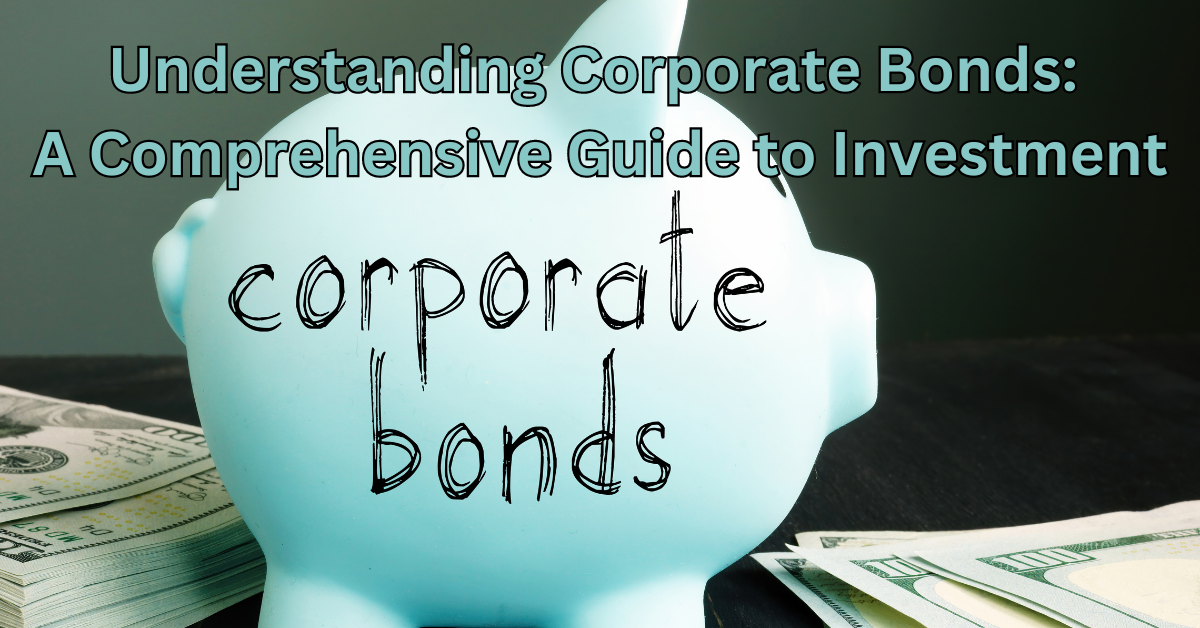Corporate bonds represent a key component of the fixed-income market, offering investors a way to earn interest while lending money to corporations. These bonds are essentially debt securities issued by companies to fund various aspects of their operations, including expansion, debt refinancing, and project financing. This article delves into the nuances of corporate bonds and outlines a strategic approach to investing in them.
What Are Corporate Bonds?
Corporate bonds are debt instruments issued by companies to raise capital. When you buy a corporate bond, you are lending money to the issuing company. In return, the company promises to pay back the principal amount on a specified maturity date, along with interest payments at predetermined intervals.
Types of Corporate Bonds
- Investment-Grade Bonds: Issued by companies with higher credit ratings, indicating lower risk of default.
- High-Yield Bonds: Also known as junk bonds, issued by companies with lower credit ratings, offering higher interest rates to compensate for the increased risk.
How Corporate Bonds Work
When a corporation issues bonds, they decide on the bond’s face value, interest rate (coupon rate), and maturity date. Investors who purchase these bonds will receive regular interest payments until the bond matures, at which point the principal amount is repaid.
The Role of Credit Ratings
Credit rating agencies such as Moody’s, Standard & Poor’s, and Fitch assign ratings to corporate bonds based on the issuer’s financial health and ability to repay debt. These ratings range from high-grade (low risk) to non-investment grade (high risk).
Benefits of Investing in Corporate Bonds
- Income Generation: Corporate bonds provide a steady stream of income through regular interest payments.
- Diversification: Adding corporate bonds to your investment portfolio can reduce overall risk.
- Capital Preservation: Investment-grade bonds offer a safer option for preserving capital.
Risks Associated with Corporate Bonds
- Credit Risk: The risk that the issuer will be unable to make timely interest payments or repay the principal.
- Interest Rate Risk: Bond prices inversely correlate with interest rates; as rates rise, bond prices typically fall.
- Liquidity Risk: Some corporate bonds might be harder to sell quickly without taking a loss.
How to Invest in Corporate Bonds
- Direct Purchase: Investors can buy corporate bonds directly through brokerages. This method offers full control over the selection of individual bonds but requires thorough research.
- Bond Funds: Investing in bond mutual funds or exchange-traded funds (ETFs) is a way to gain exposure to a diversified portfolio of corporate bonds, managed by professionals.
- Bond Ladders: This strategy involves purchasing bonds with varying maturities to manage interest rate risk and provide regular income.
Also Check – Profitable Trading Tool
Steps to Start Investing in Corporate Bonds
- Assess Your Investment Goals: Consider your risk tolerance, investment horizon, and income needs.
- Research: Investigate the issuing companies’ financial health, industry position, and credit ratings.
- Diversification: Spread your investment across different sectors and credit ratings to mitigate risk.
- Stay Informed: Keep abreast of market trends, interest rate movements, and economic indicators that can affect bond prices.
- Consider Professional Advice: Consulting with a financial advisor can provide personalized guidance tailored to your financial situation.
Tax Considerations
Interest income from corporate bonds is generally subject to federal and, in some cases, state and local taxes. Understanding the tax implications is crucial for assessing the net return on your investment.
The Secondary Market
Corporate bonds can be bought or sold on the secondary market before they reach maturity. This market offers flexibility, allowing investors to respond to changes in the market or their investment strategies.
Future Outlook
The corporate bond market is influenced by various factors, including economic conditions, interest rates, and corporate earnings. Staying informed about these factors can help investors make more informed decisions.
Open Your Account Click Here
Conclusion
Investing in corporate bonds can be a worthwhile endeavor for those seeking to generate income while maintaining a relatively low-risk profile. However, it’s essential to understand the intricacies of the bond market, including the types of bonds available, their associated risks, and how to effectively incorporate them into your investment strategy. By conducting thorough research and possibly consulting with financial professionals, investors can navigate the corporate bond market to enhance their portfolios and achieve their financial objectives.
This comprehensive overview serves as a starting point for those interested in exploring the opportunities that corporate bonds offer. With careful consideration and strategic planning, corporate bonds can be an integral part of a well-rounded investment portfolio.
Also Check – What Is IPO?
Disclaimer
The information provided in this article is for educational and informational purposes only and should not be construed as financial, legal, or professional advice. While the content is researched and reviewed, it does not guarantee the accuracy, completeness, or timeliness of the information. The strategies and insights discussed are general in nature and may not apply to individual circumstances or financial situations.
Readers are encouraged to consult with professional financial advisors or planners before making any financial decisions based on the content of this article. The author and publisher of this article disclaim any liability or loss incurred as a consequence of the use or application, either directly or indirectly, of any information presented herein.
It is important to conduct your own research and due diligence regarding personal finance strategies and consult with a qualified professional who can provide advice tailored to your specific situation. Remember, investing involves risks, including the potential loss of principal, and there is no assurance that any investment strategy will be successful.

